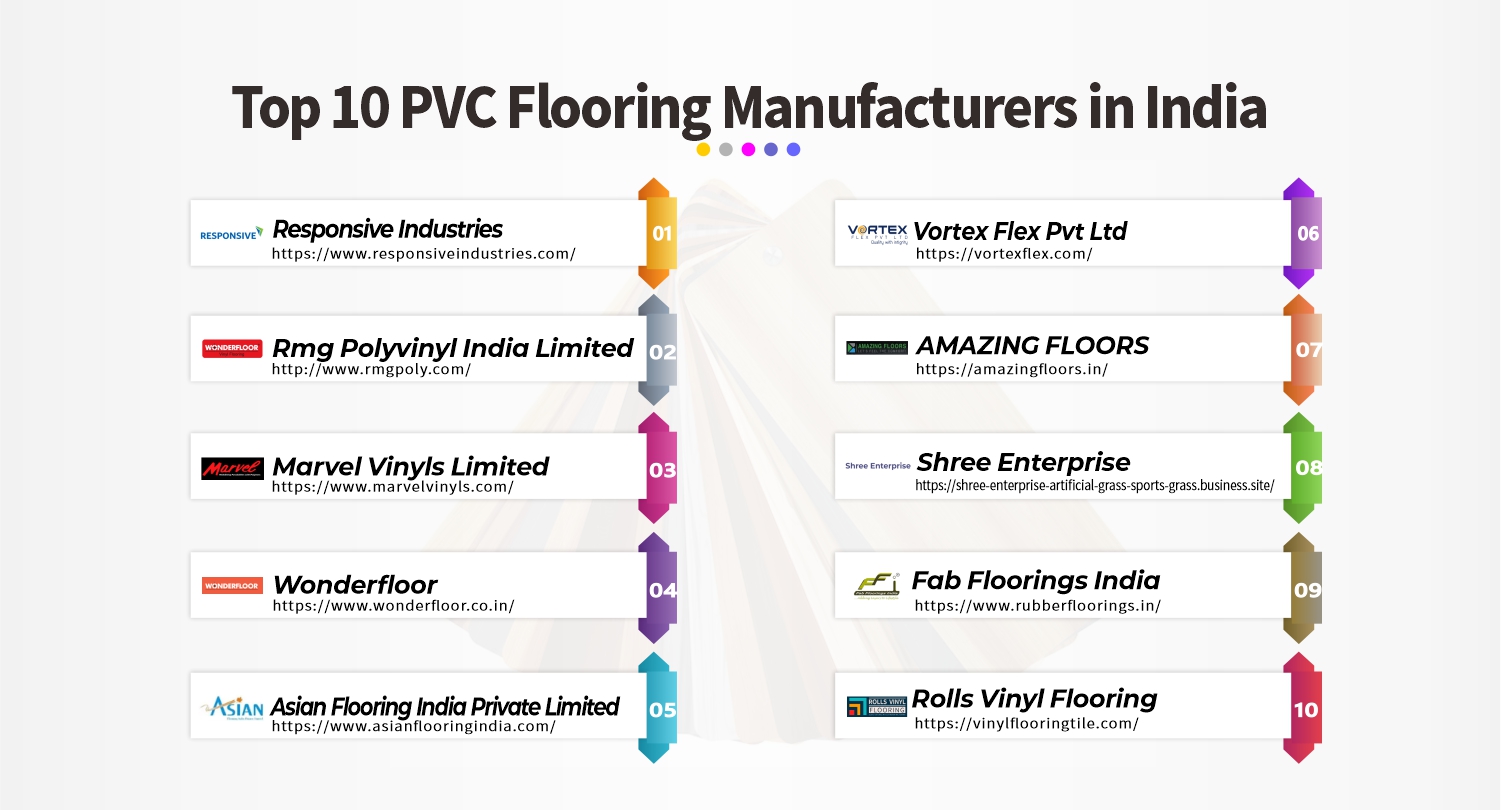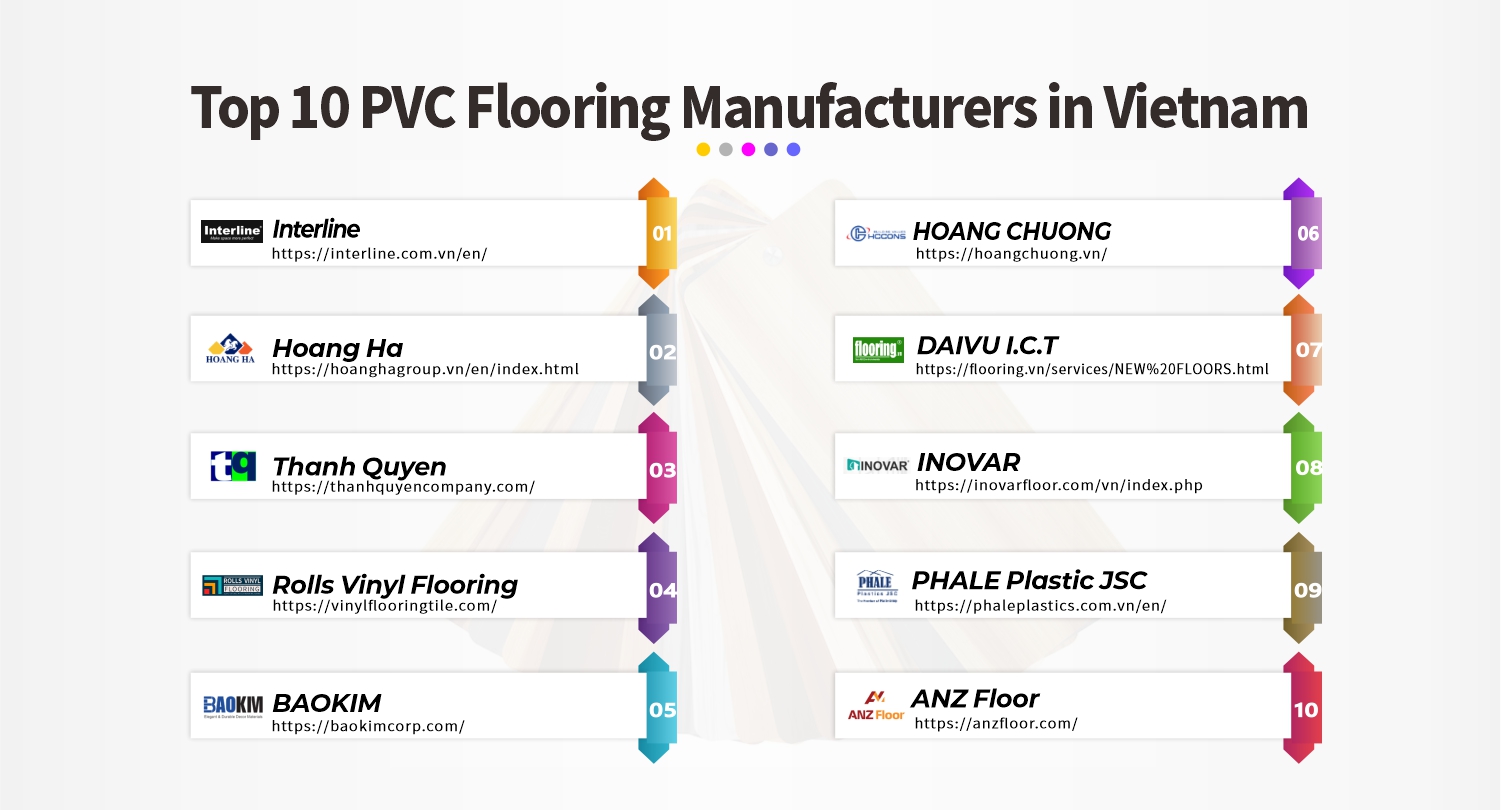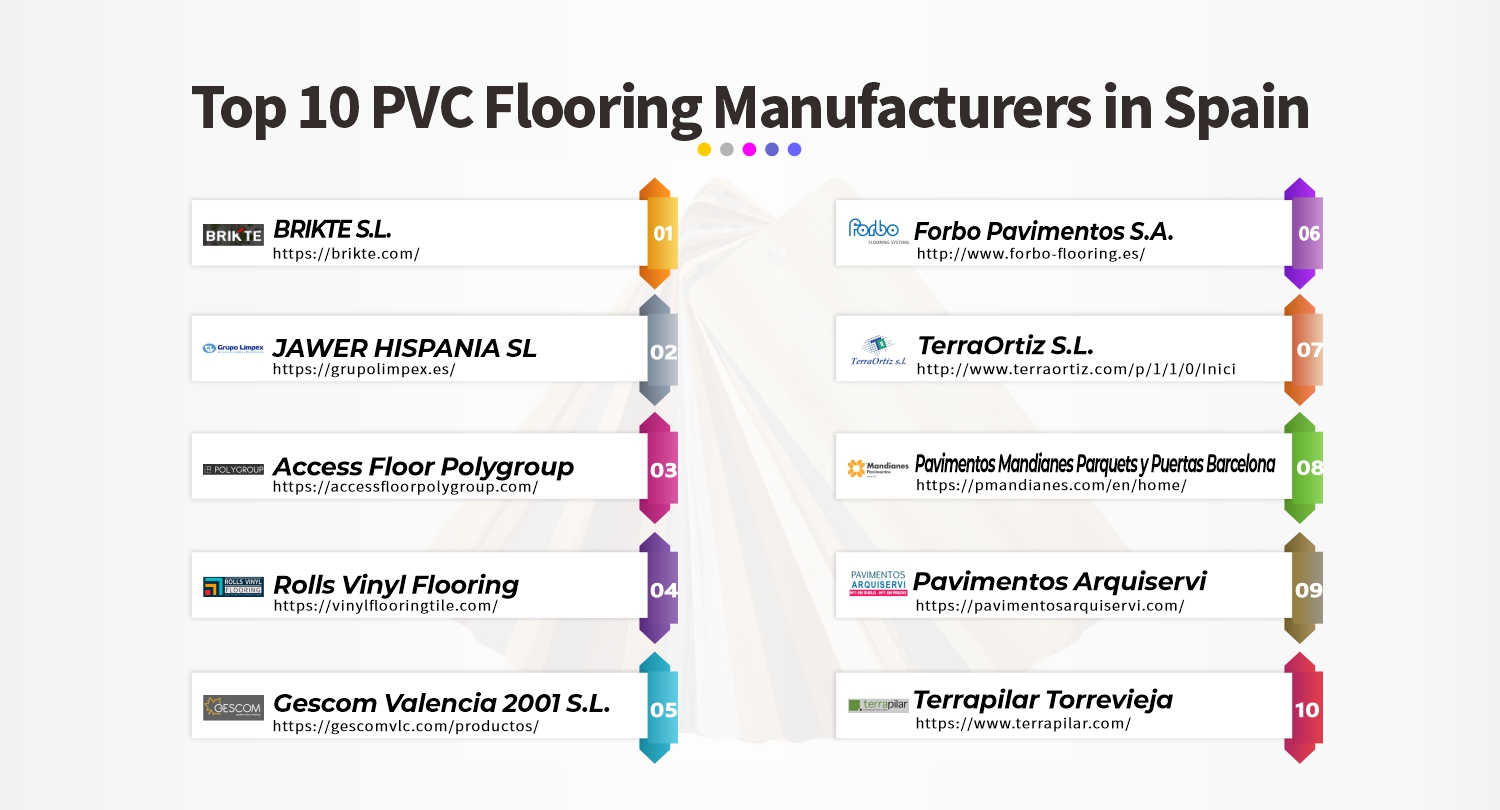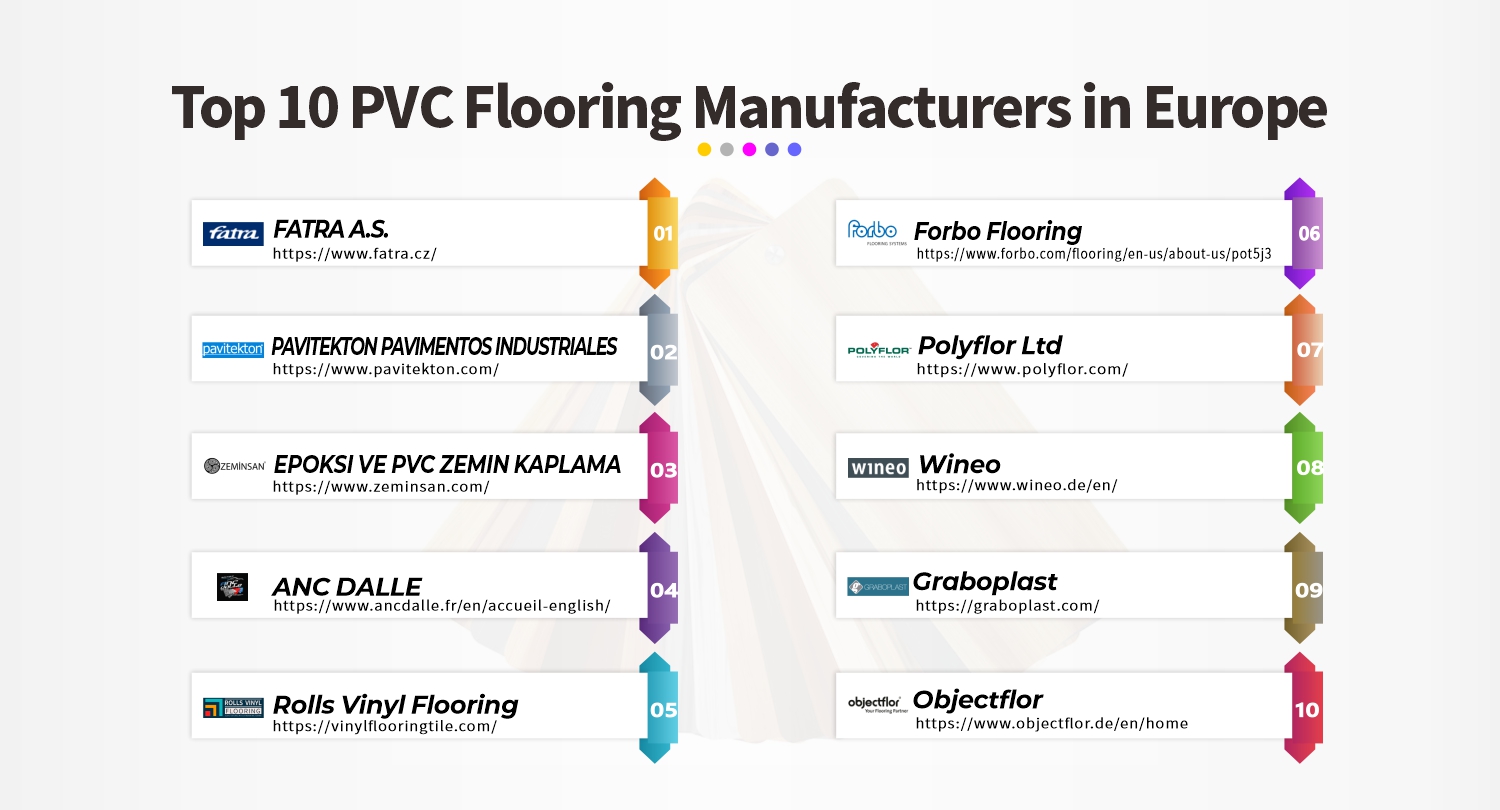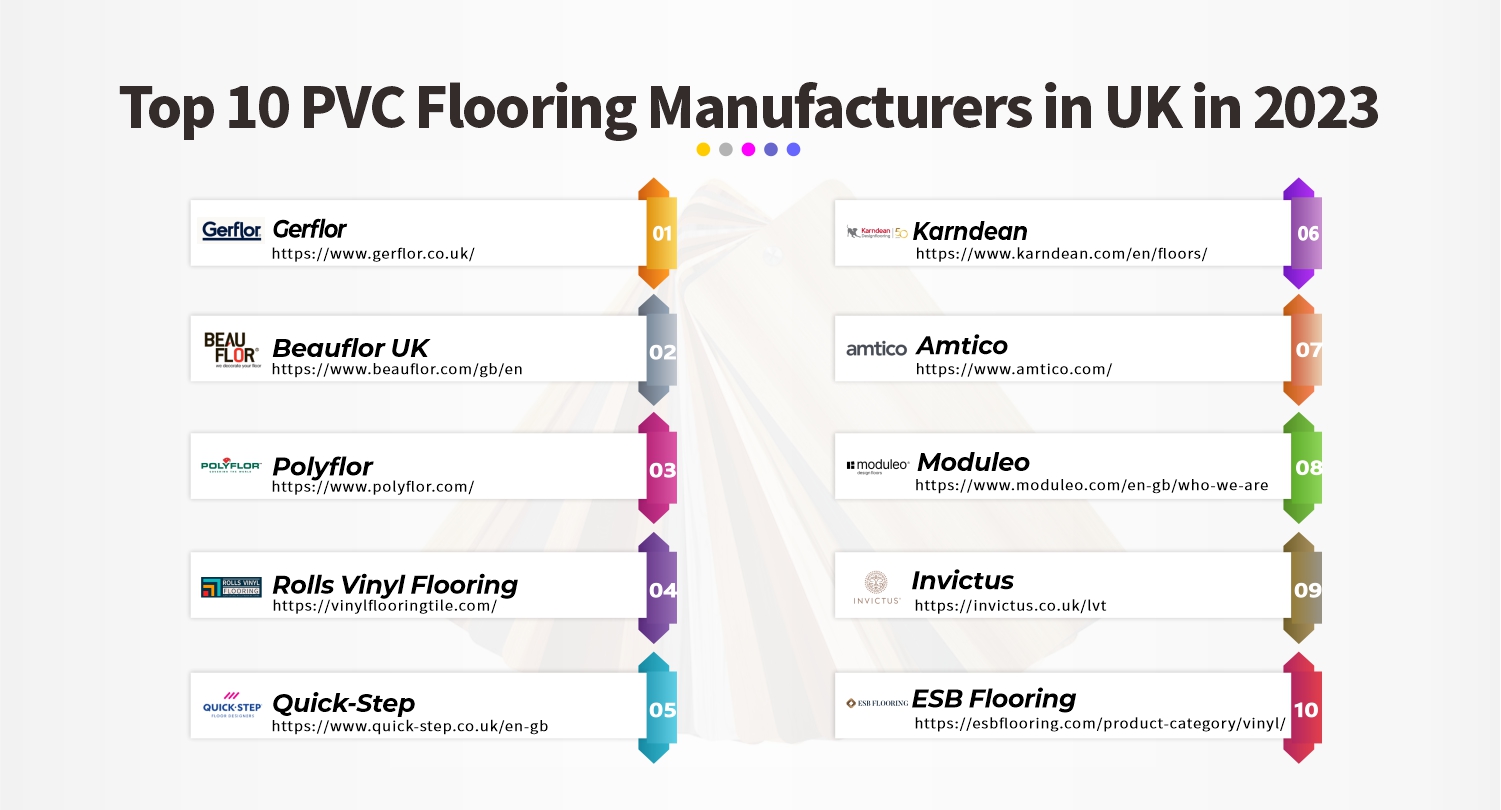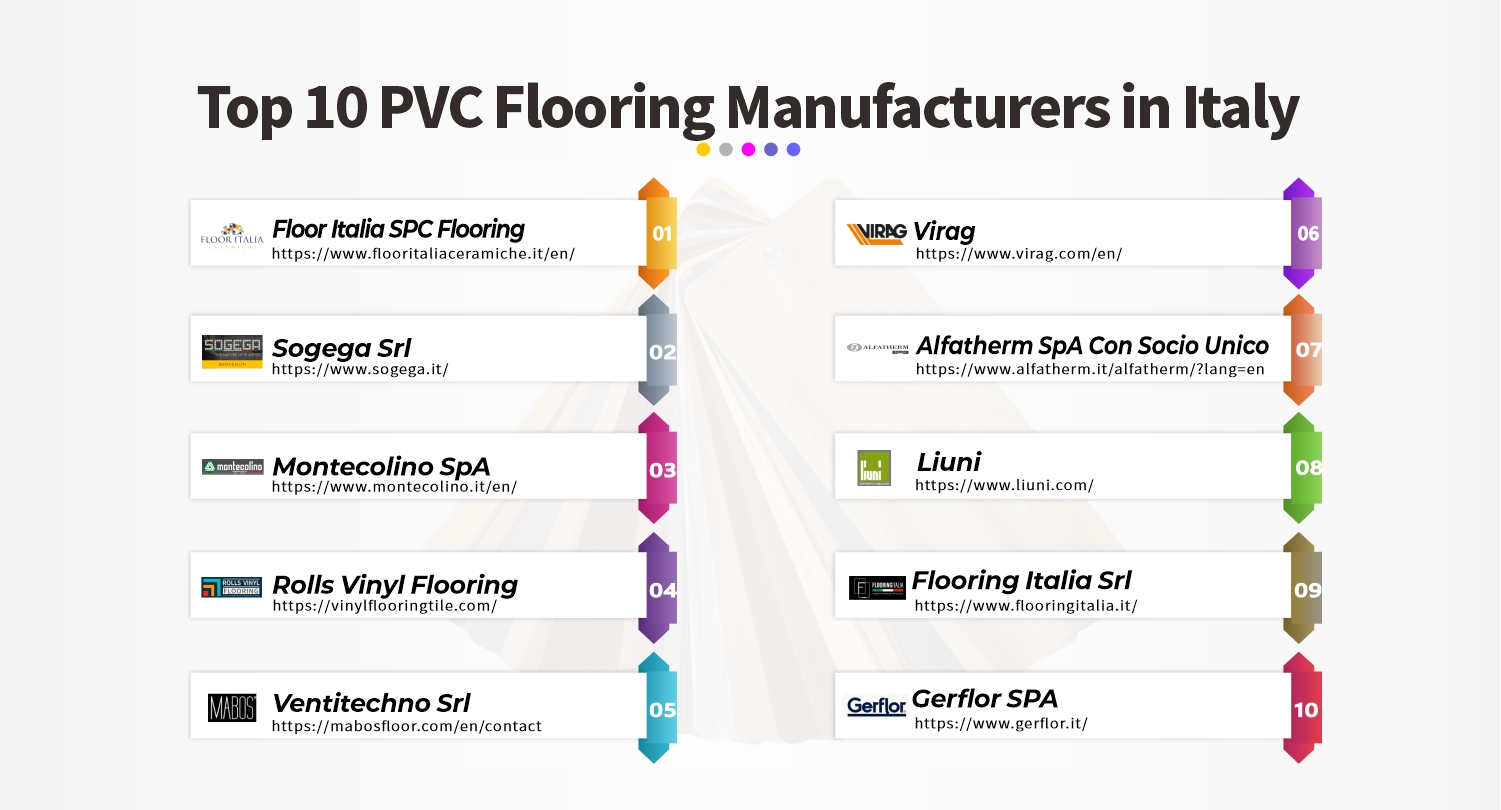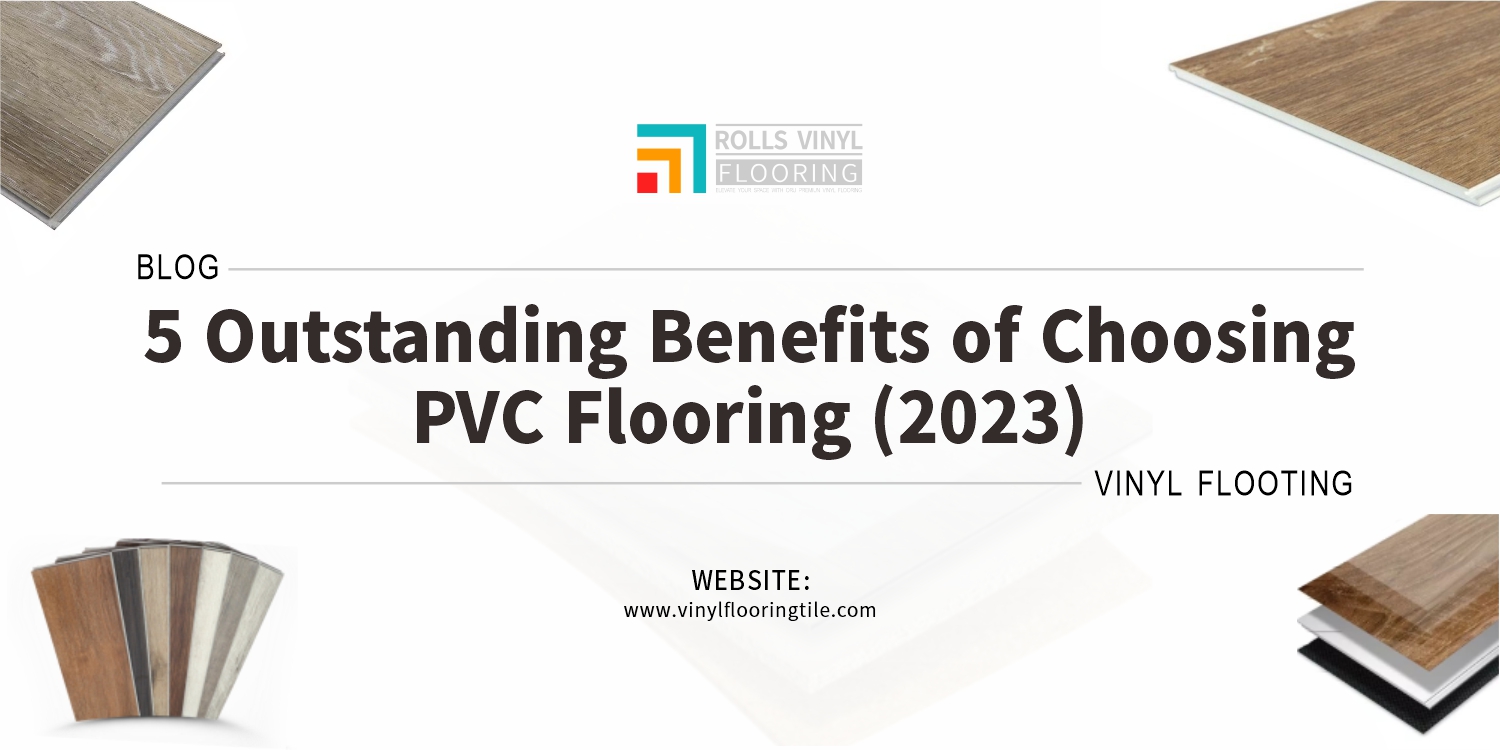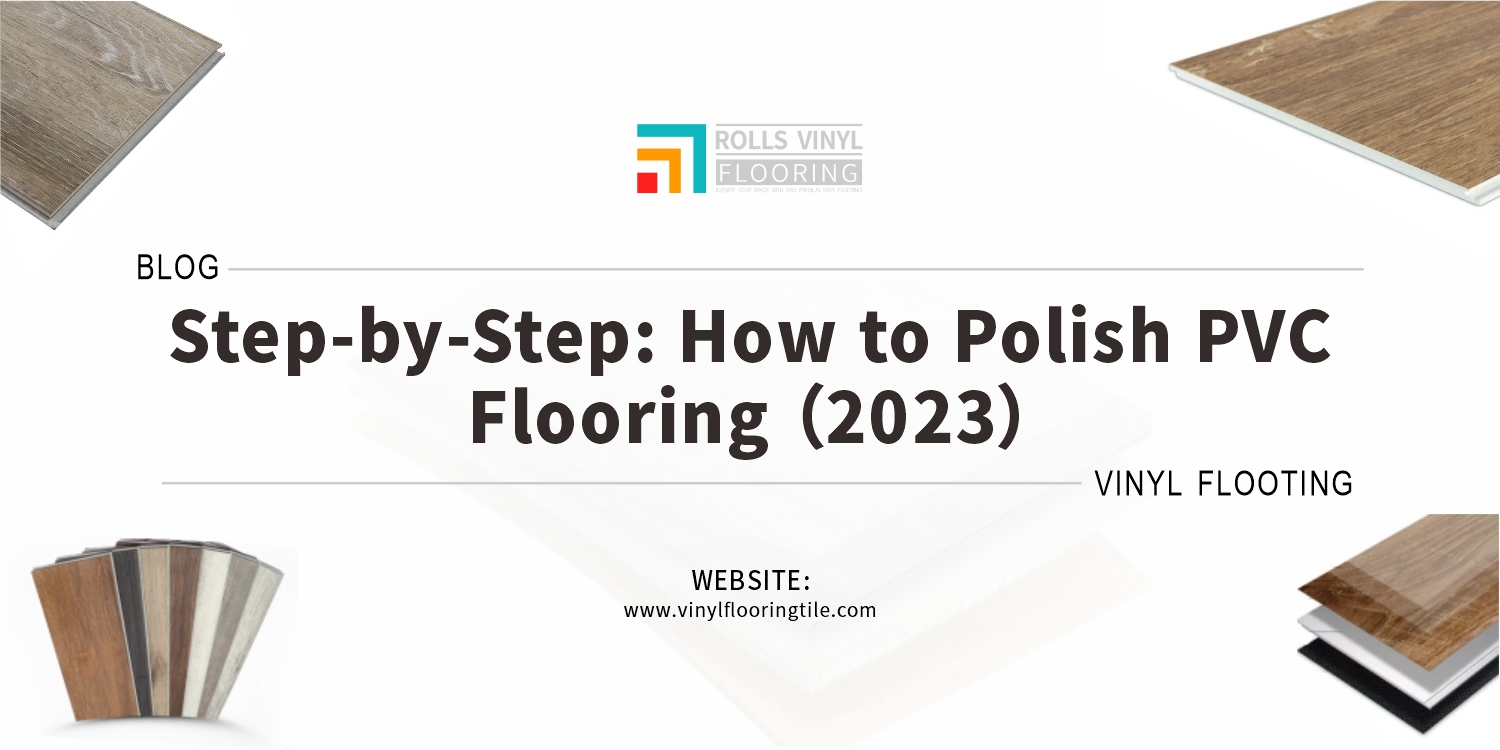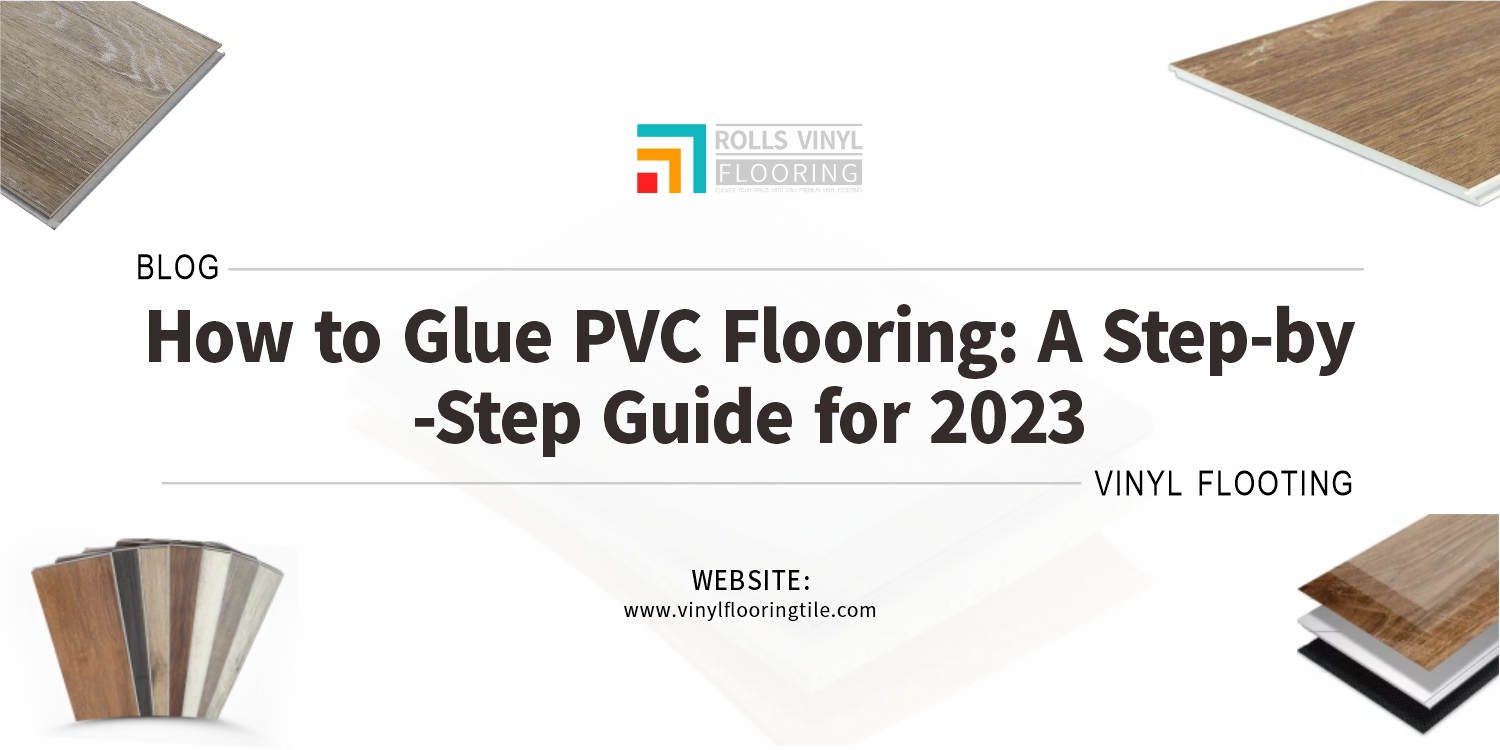If you or someone in your household suffers from allergies, you know how challenging it can be to keep your home allergen-free. In this article, we’ll explore the benefits of vinyl flooring for allergy sufferers, including some surprising advantages that make it a practical and affordable choice for any home.
Resistant to dust mites
Easy to clean
It doesn’t trap allergens like carpet does
It can be used in different areas of the house
Additional: Durable, Affordable, Easy to install
From its durability and affordability to its ease of installation, there’s a lot more to learn about how vinyl flooring can help allergy sufferers breathe easier and enjoy a healthier home.
What is vinyl flooring and its Characteristics
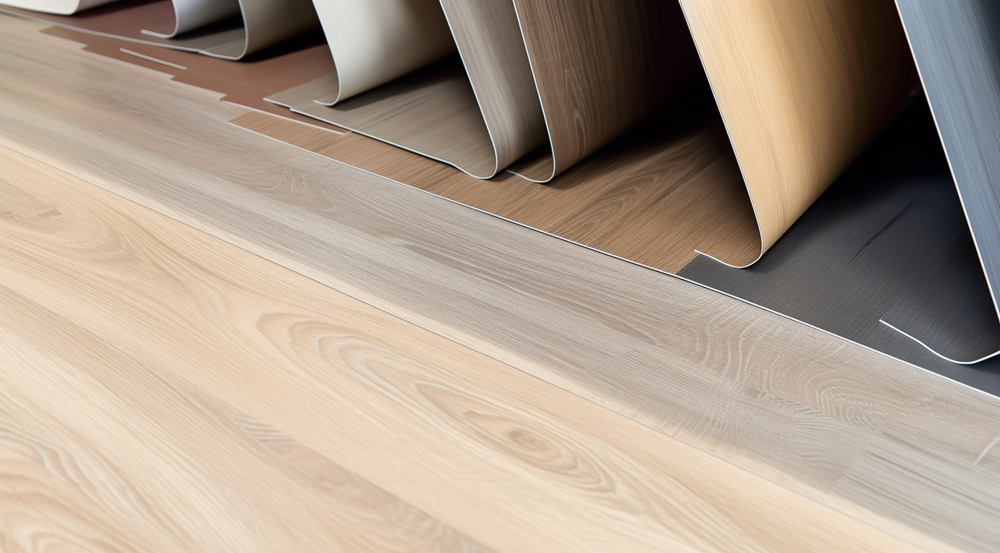
Vinyl flooring is considered a low-maintenance and cost-effective flooring option. It has gained popularity in recent years due to its wide variety of styles, colors, and textures that can create unique looks in any room. Vinyl flooring replicates the look of natural materials like stone and hardwood but is less expensive and more durable. It also requires minimal upkeep compared to other types of flooring, such as hardwood or tile, which need regular cleaning and re-sealing or waxing. Vinyl flooring is available in sheet form and individual tiles or planks, which come in various sizes, finishes, patterns, and colors for you to choose from.
Vinyl floors are water-resistant, making them a great choice for bathrooms and kitchens. They are also highly durable and can withstand heavy foot traffic without showing wear or damage. Vinyl is easy to clean and maintain, requiring only a mop or broom with mild soap or detergent to keep it looking its best. The thicker the vinyl flooring, the more resistant it will be to scratches, tears, and scuffs.
Vinyl flooring is also eco-friendly as most products contain recycled materials such as plastics and cork that would otherwise end up in landfills. Low maintenance makes it ideal for busy households and pet owners since it is resistant to pet hair and dander buildup. Furthermore, vinyl floors are fire-resistant, which adds an extra layer of protection to your home.
Overall, vinyl flooring is an excellent choice for those seeking an affordable, stylish, easy-to-maintain option. It adds warmth and character to any room, and its durable construction allows it to stand up to heavy foot traffic without showing signs of wear or damage. With so many colors, styles, finishes, sizes, and textures available, you will indeed find the perfect vinyl flooring for your home.
Comparing Vinyl Flooring to Other Flooring Options:
Hardwood Flooring:
While hardwood flooring is a classic and elegant choice, it is typically more expensive than vinyl flooring. It is also more susceptible to scratches, stains, and water damage than vinyl flooring, making it less durable.
Carpet Flooring:
Carpet flooring can be comfortable and cozy underfoot, but it is not as durable or easy to maintain as vinyl flooring. Carpet fibers can trap dust, dander, and other allergens, making them less hypoallergenic than vinyl flooring.
Tile Flooring:
Tile flooring is durable and water-resistant, but it can be expensive to install. It is also cold and hard underfoot, making it less comfortable than vinyl flooring.
Table
| Material | Description | Pros | Cons |
|---|---|---|---|
| Vinyl | Synthetic material | Hypoallergenic, easy to clean, moisture-resistant, durable, affordable, available in a wide range of styles and colors. | May emit harmful VOCs, may contain phthalates and other potentially harmful chemicals, may not be biodegradable. |
| Hardwood | Natural material made from trees. | Timeless aesthetic, durable, can be refinished multiple times, improves indoor air quality. | Expensive, prone to scratches and dents, requires regular maintenance, may be prone to warping or buckling in humid environments. |
| Carpet | Soft material made from fibers such as wool, nylon, or polyester. | Soft and comfortable, good for insulation and soundproofing, available in a wide range of styles and colors. | Can trap allergens, difficult to clean, may emit VOCs and other harmful chemicals, may wear down quickly. |
| Tile | Hard, durable material made from clay, stone, or ceramic. | Moisture-resistant, easy to clean, available in a wide range of styles and colors. | Can be cold and hard underfoot, may be slippery when wet, may be prone to cracking or chipping. |
How vinyl flooring benefits allergy sufferers

Resistant to dust mites:
Vinyl flooring is resistant to dust mites, one of the leading causes of home allergies. Dust mites thrive in warm and humid environments and can cause asthma, skin rashes, and other allergic reactions. Vinyl flooring does not allow dust mites to find hiding spots and can be an effective way to prevent allergies.
Easy to clean:
Vinyl flooring is easy to clean, making it an excellent choice for people with allergies. Dust and other particles can accumulate on flooring, exacerbating allergy symptoms. However, vinyl flooring can be easily cleaned with a simple wet mop, and dirt or dust can be easily removed. Keeping a clean and dust-free home is crucial for people with allergies.
Doesn’t trap allergens like carpet does:
Carpet is notorious for trapping allergens, making it a nightmare for people with allergies. Vinyl flooring, on the other hand, doesn’t trap allergens as carpet does. This means that allergens are less likely to accumulate in the flooring, making it easier to keep the area clean and allergen-free.
Can be used in different areas of the house:
Vinyl flooring is versatile and can be used in different areas of the house, including the kitchen, bathroom, and basement. This means that allergy sufferers can enjoy the benefits of vinyl flooring throughout their homes, reducing their exposure to allergens.
Vinyl flooring can benefit allergy sufferers in several ways. It is resistant to dust mites, easy to clean, doesn’t trap allergens like carpet does, and can be used in different areas of the house. If you or someone in your family suffers from allergies, consider installing the vinyl flooring to reduce exposure to allergens and improve overall indoor air quality.
Table 2: Tips for Maintaining Vinyl Flooring
| Tip | Description |
|---|---|
| Sweep or vacuum regularly | Regular sweeping or vacuuming will remove dirt, dust, and allergens before they can build up on your vinyl flooring. Be sure to use a soft-bristled brush or a vacuum with a hard floor setting to avoid damaging the vinyl. |
| Clean up spills promptly | Vinyl flooring is moisture-resistant, but it’s still important to clean up spills as soon as possible to prevent damage and mold growth. Use a damp mop or cloth and mild cleaning solution to clean up spills and stains. |
| Use doormats | Placing doormats at the entrances to your home can help prevent dirt, dust, and allergens from being tracked onto your vinyl flooring. Be sure to clean or replace the doormats regularly to keep them effective. |
| Avoid harsh cleaning products | Harsh cleaning products can damage or discolor your vinyl flooring, and may also contribute to poor indoor air quality. Stick to mild, non-abrasive cleaning solutions and avoid using ammonia or bleach. |
| Protect your flooring | Heavy furniture, high heels, and pet claws can all scratch or dent your vinyl flooring. Use furniture pads, take off your shoes indoors, and keep pets’ nails trimmed to help protect your flooring. |
Additional benefits of vinyl flooring
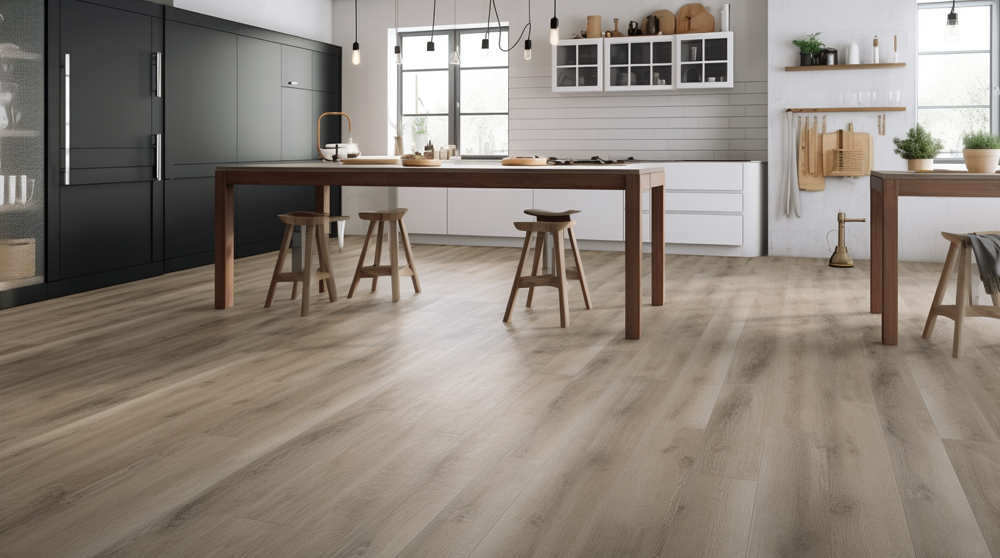
Durability:
Vinyl flooring is known for its durability and long-lasting properties. This flooring can withstand heavy foot traffic, spills, and scratches, making it an excellent choice for homes with pets or children. Its resilience means it won’t trap allergens like dust, pollen, or pet dander, which can cause allergic reactions and compromise indoor air quality.
Affordability
Vinyl flooring is one of the most affordable flooring options available. It costs significantly less than hardwood, ceramic, or stone flooring, and it’s an excellent value for homeowners on a budget. Choosing vinyl over other flooring materials can also save you money on maintenance and repairs in the long run.
Easy to install:
Vinyl flooring is relatively easy to install, making it an attractive option for homeowners who prefer DIY projects. It can be installed over most existing flooring surfaces without requiring expensive or time-consuming subfloor preparations. Additionally, vinyl flooring comes in various formats, including planks, tiles, and sheets, making it versatile and easy to customize for different rooms and styles.
Variety of styles:
Vinyl flooring offers a wide range of styles and design options, including patterns that mimic the look of natural materials such as wood, stone, and tile. This allows homeowners to achieve their desired look without compromising their health or well-being. The variety of styles available also means a vinyl flooring option for every room in the house, from the kitchen to the bathroom.
Low maintenance:
Vinyl flooring is low maintenance compared to other types of flooring. It is resistant to stains, mildew, and water damage, which makes it easy to clean and care for. Simply sweeping or vacuuming regularly should be sufficient to maintain its appearance. This means that homeowners with allergies can spend less time cleaning and more time enjoying their homes.
Vinyl flooring can be an excellent investment to reduce allergens in your home. Not only is it dust mite resistant, easy to clean, and versatile, but it also has many other advantages that make it a popular choice among homeowners. Continue reading to learn how vinyl flooring can make your home more comfortable and allergy-free for you and your family.


